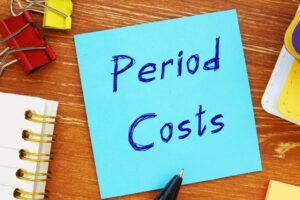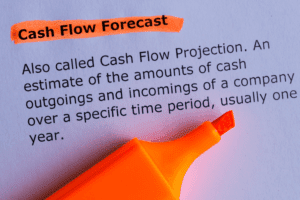
This means a bill does not show in financial records until payment has been made. For example, if a company receives an invoice for services in January but doesn’t pay the bill until February, the expense would show up in February. HighRadius offers a cloud-based Record to Report Suite that helps accounting professionals streamline and automate the financial close process for businesses. We have helped accounting teams from around the globe Bookkeeping for Startups with month-end closing, reconciliations, journal entry management, intercompany accounting, and financial reporting. In comparison, when you use the accrual method, you record revenue when a sale is made, whether cash is received or not, and you record expenses when you receive goods or services, not when you pay for them. This method might help you delay paying income tax on earnings until you collect the money — which can be especially helpful for small businesses with tight cash flow.

Complexity and Higher Administrative Burden

Most businesses are required to follow GAAP, especially if they are publicly traded or seeking investment. Using cash basis accounting can limit a company’s ability to attract investors or secure financing, as it may not provide a comprehensive and accurate picture of the business’s financial health. Focusing on the actual cash you receive and pay provides a clear picture of a company’s cash flow.
- An accountant can help evaluate if switching benefits the business and guide through the process to avoid tax penalties or reporting errors.
- For example, they record a bill as an accounts payable at the time of the invoice, regardless of payment date.
- FreshBooks is an accounting software service with affordable tier options aimed at freelancers and small businesses.
- Generally accepted accounting principles (GAAP) dictate the accrual basis, but many small businesses may nonetheless find it more cost-effective to utilize the much simpler cash basis.
- Next, adjust your accounting records to reflect only cash transactions; include received payments and paid expenses.
- If you’re a small business owner trying to understand your finances, you’ve probably heard the terms cash basis and accrual basis thrown around.
Accrual Method Vs Cash Basis Accounting

Many cash accounting companies prefer this method as it enables Certified Public Accountant them to manage bookkeeping without the need for a professional accountant, especially for startups. Cash accounting and accrual accounting differ primarily in the timing of when revenues and expenses are recognized. In cash accounting, transactions are recorded when cash is exchanged, providing a straightforward view of actual cash flow. Conversely, accrual accounting records income and expenses when they are earned or incurred, regardless of when cash changes hands. This gives a more accurate picture of a business’s long-term financial health and obligations. While cash accounting is simpler and often used by small businesses, accrual accounting offers a more comprehensive financial picture, which is essential for larger or inventory-heavy businesses.
How does cash accounting work?
- Cash accounting may not give an accurate picture of your company’s overall financial position.
- This timing disconnect represents both the simplicity and the potential distortion that cash accounting creates.
- Selecting the wrong accounting method could mean paying more taxes, complicated accounting workflows, and less useful financial statements.
- With Cash accounting, financial reports directly show available funds, which means there is no distinction between ‘profit’ and recorded ‘cash’ – they are one and the same.
- In accrual-based accounting, it doesn’t matter how many bills you’ve collected or paid.
- First, evaluate if your business qualifies for cash accounting based on IRS revenue thresholds and criteria.
- FreshBooks offers easy invoicing and payment features for small businesses or freelancers.
A business only uses cash accounts, which means nothing is recorded in accounts payable, accounts receivable, or any long-term liability accounts. Cash and accrual accounting methods mainly differ in how they record revenue and expenses. These differences affect when businesses recognize transactions and how complete their financial picture is.

Timing of Revenue/Expense Recognition
One of the first decisions you need to make when you start a business is deciding whether you’ll use the cash basis accounting method or accrual basis accounting. This is a major decision that shapes how you account for income and expenses and pay taxes. Choosing the right accounting method is one of the most important decisions a small business owner can make. For many, cash basis accounting offers a simple and effective way to track income and expenses while maintaining a clear picture of their financial health. Smaller businesses and sole proprietors often prefer cash basis accounting because it is simpler and focuses on actual cash flow.

Depending on the business model, the accounting method can clarify your business’ financial picture. Each taxpayer must use a consistent basis of accounting to report income and expenses. When transitioning to cash basis accounting, several considerations can facilitate a smooth shift. First, assess the potential impact on financial reporting cash basis accounting measures income based on and understand how the change will alter your financial statements’ portrayal. Be prepared for an initial adjustment period where clarity in cash flow may require close monitoring.